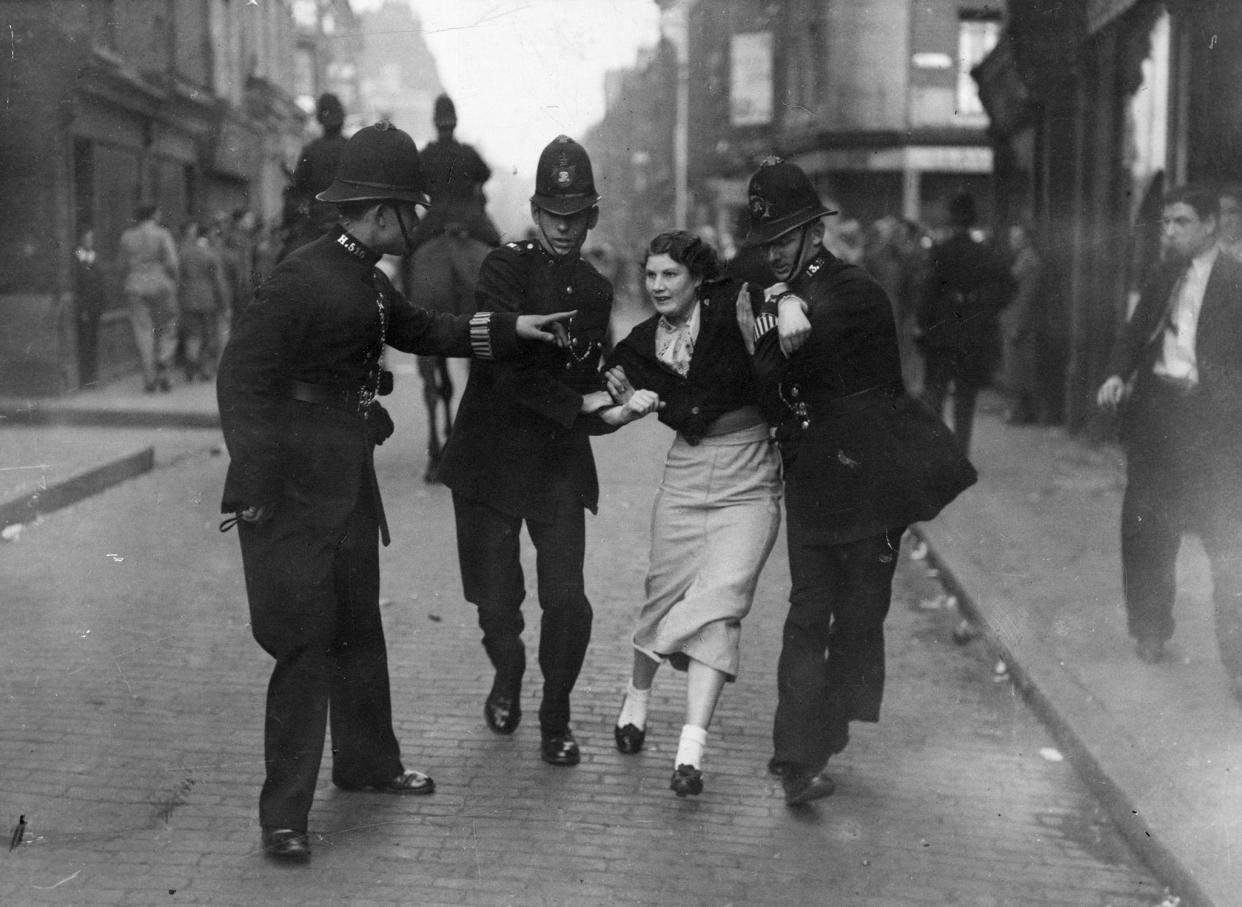The fight against fascism didn't end with the Nazis – Britain's Jewish antiracists continued it here on our streets

Holocaust Memorial Day marks 27 January 1945, the day Auschwitz was liberated. However, it would be a few more months before the horrors of the concentration camps were first relayed to the British public. On 19 April 1945, Richard Dimbleby, who had just returned to London from the newly-liberated Bergen Belsen, tried to describe to the nation the “world of a nightmare” he had witnessed. “Dead bodies, some of them in decay, lay strewn about the road and along the rutted tracks... Inside the huts it was even worse. I’ve seen many terrible sights in the last five years, but nothing, nothing approaching the dreadful interior of this hut at Belsen.”
Two days earlier, a Jewish chaplain had entered the camp for the first time. Rev. Leslie Hardman, a Welsh-born Orthodox Rabbi, had first become aware of the Nazis’ crimes while serving in the British Army Chaplain’s Department in the Netherlands in the autumn of 1944. However, nothing that he had learned would prepare him for what he would see when he entered Belsen.
The first person he met there was a girl so badly-burnt and emaciated that Hardman recoiled when she tried to hug him. The horrors were unceasing. Surveying the survivors, a “staggering mass of blackened skin and bones, held together somehow with filthy rags,” Hardman cried “‘My God, the dead walk.” But the indignities heaped upon the Nazis’ victims were not yet at an end. The British were using bulldozers to push the corpses into mass graves. Hardman stopped them, insisting that the victims be given proper Jewish burials. Over the following weeks, Hardman officiated over the funerals of thousands of bodies.
Hardman never got over what he witnessed at Belsen; the months he spent in the camp cast a shadow over the rest of his life. They also made him a committed anti-fascist. When Hardman returned to Britain, he joined a militant anti-fascist group that much of the Jewish establishment – including many of his new congregants at Hendon United Synagogue – stridently opposed.
During the war, the government had interned Britain’s fascists – including the leader of the British Union of Fascists, Oswald Mosley – and banned all fascist organising. At the war’s end, all such restrictions were lifted, and many of Mosley’s supporters immediately tried to resurrect their movement: based primarily in London, they began holding public meetings, publishing incendiary literature, daubing antisemitic graffiti and otherwise targeting the Jewish community.
Jewish ex-service personnel returning home from the war reacted to the fascists’ renewed presence with outrage. Realising that neither police nor government were willing to curb the Mosleyites, and that the Jewish community leaders would countenance nothing that could cause controversy, they decided to take matters into their own hands. They had just been sent to Europe to defeat fascism; for them, it stood to reason that a similar approach should be taken at home.
Their answer to the fascists was the 43 Group (named after the number of founding members), a militant anti-fascist organisation founded by Jewish ex-servicemen, but open to all who were willing to tackle the fascists head-on.
The 43 Group heckled, barracked and physically attacked fascist street meetings; disrupted private meetings; and destroyed fascist printing presses and literature. In the summer of 1947, a series of clashes around Dalston, Hackney between fascists and the 43 Group, fighting alongside their left-wing allies, brought thousands into the area every Sunday evening for what became known as “The Battle of Ridley Road”.
Although the 43 Group’s members included decorated war heroes and former prisoners of war, many perceived them as trouble-making thugs overreacting to the petty misdemeanours of harmless crackpots. Yet the Nazis had also been dismissed as fringe cranks, and the members of the 43 Group had witnessed what happened when such threats are not taken seriously. Far better, the Group concluded, to meet them on the street with fists than on the battlefield with tanks.
Leslie Hardman never got involved in the street fighting. Instead, he became the Group’s spiritual leader, offering moral support and pastoral care. For Hardman and the Group, “never again” was no empty vow, but words to live by. On Holocaust Memorial Day, we should remember not only the victims of the Nazis' crimes, but also all of those who have bravely prevented similar atrocities from happening again.
Daniel Sonabend is the author of We Fight Fascists: The 43 Group and Their Forgotten Battle for Post-War Britain.

 Yahoo News
Yahoo News 
